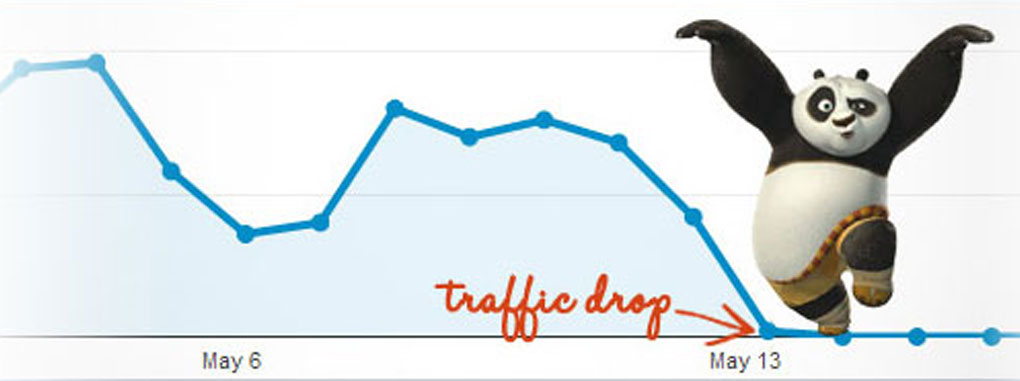Google Panda or Farmer is a change to the Google’s search results ranking algorithm that was first released in February 2011. Getting ranked in Google means free traffic for web publishers, so improving and optimizing a given website for the search engines was essential. However, Google Panda is here to stay, and it has forever changed the rules of SEO.
So what is Google Panda?
The aims of Panda are to remove low quality sites from the top of Google’s results pages. As Matt Cutts, Google’s head of spam, puts it in a blog post announcing Panda:
“This update is designed to reduce rankings for low quality sites—sites which are low-value add for users, copy content from other websites or sites that are just not very useful. At the same time, it will provide better rankings for high quality sites—sites with original content and information such as research, in-depth reports, thoughtful analysis and so on.”
The last thing Google wants are surfers being unhappy with what they find. They might try another search engine if that happens.
Few people other than the low quality sites’ owners and their investors will have a problem with that. The change aimed to lower the rank of “low-quality sites”, and return higher-quality sites near the top of the search results.
Factors which make a site vulnerable to Google Panda
Even though Google would like to keep these things a secret, two engineers from Panda provided us with some strong clues as to what factors make a site vulnerable to google panda. Different factors that Google measures to define low quality, includes:
- A high presence of copied content in a page.
- An increased number of pages with a low amount of unique content.
- A high amount of irrelevant information on the site which doesn’t match the search queries especially high on the page.
- Page contents especially title tags which do not match the search queries a page does well for.
- Low click through percentage from Google’s search results for page or site.
- A high amount of inappropriate (they don’t match the search queries a page does well for) adverts, especially high on the page.
- Unnatural language on a page including heavy-handed on-page SEO (‘over-optimization’ to use a common oxymoron). Eg, unnatural overuse of a word on a page.
- Low percentage of returning users.
- High bounce rate observed on page or site.
- Low traffic on page or site.
- Low visit times on page or site.
- A low number or percentage of quality links to a page or site
- Low or no quality inbound links to a page or site (by count or %).
- Low or no mentions or links to a page or site in social media and from other sites.
How to not be affected by Google Panda
Simply follow SEO best practice. This includes creating create positive back links, create original (not duplicate) content. Fortunately for Electric Escape and most of it’s clients, our SEO techniques are built more around SEO best practice instead of mass-producing article and blog content.
The proof? Since Google Panda was rolled out, www.electricescape.com has almost doubled in page hits.



